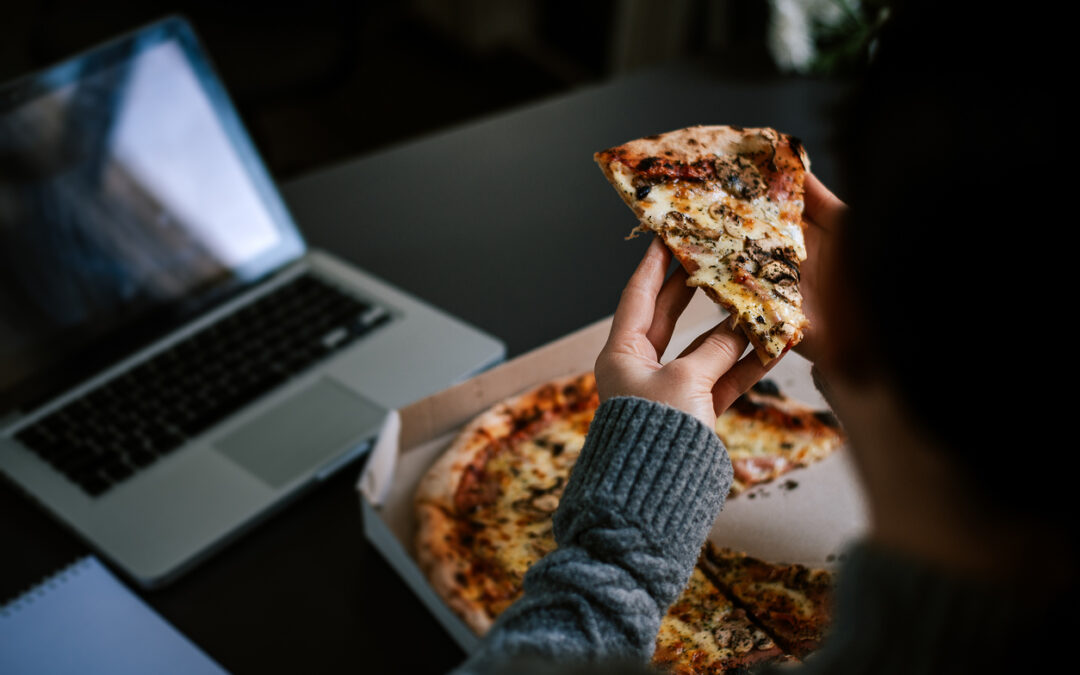Nighttime snacking and late meals can lead to poor sleep and digestion, impeding one’s ability to maintain a healthy body composition. Often, nighttime snacking is less about hunger and more about habit—whether it’s eating while watching TV, using food for comfort, or simply not realizing you’re doing it.
Causes of Nighttime Snacking:
- Undereating During the Day: Skipping meals can lead to excessive hunger in the evening.
- Imbalanced Diet: A diet high in carbs and low in protein can increase cravings. Micronutrient deficiencies may also contribute.
- Accessibility: Readily available snack foods make indulging easier, even when you’re not truly hungry.
- Emotional Eating: Food unconsciously becomes a source of comfort during stressful moments.
- Boredom: Eating can become a way to pass the time when you’re feeling restless.
- Diet High in Highly Processed Foods: Processed foods typically lack fiber, protein, and essential nutrients, making them less satisfying.
Understanding why you snack at night is crucial for managing it. Keep a log of when and why you eat in the evening (hunger, habit, boredom, stress, cravings, etc.). Once you know your triggers, identify why you want to change your eating habits. Knowing your ‘why’ grounds you and provides a meaningful reason to make positive changes.
Tips to Curb Nighttime Snacking:
- Healthy Distractions: Engage in activities like journaling, meditating, or reading instead of screen time.
- Pause Before Snacking: Take a moment to assess your hunger and decide if snacking is necessary.
- Portion Control: Measure your snacks to avoid overeating.
- Reduce Temptation: Don’t keep highly tempting snacks at home; allow yourself to enjoy them outside.
- Meal Planning: Strategically plan your meals, snacks, and occasional treats to minimize the chances of overeating.
- Prioritize Protein: Protein is the most satiating macronutrient. Incorporating it into every meal (and snack) can help curb cravings.
- Stay Hydrated: Dehydration can often be mistaken for hunger. Aim for half your body weight in ounces of water daily.
In conclusion, nighttime snacking doesn’t have to derail your health and wellness goals. You can improve your evening habits by understanding the underlying causes and implementing mindful strategies. Remember, change doesn’t happen overnight. Be patient with yourself as you embark on this journey toward healthier eating patterns. With awareness, a solid plan, and a commitment to your ‘why,’ you can take control of your nighttime snacking and pave the way for improved sleep, digestion, and overall well-being. Start tonight—your body (and mind) will thank you!

